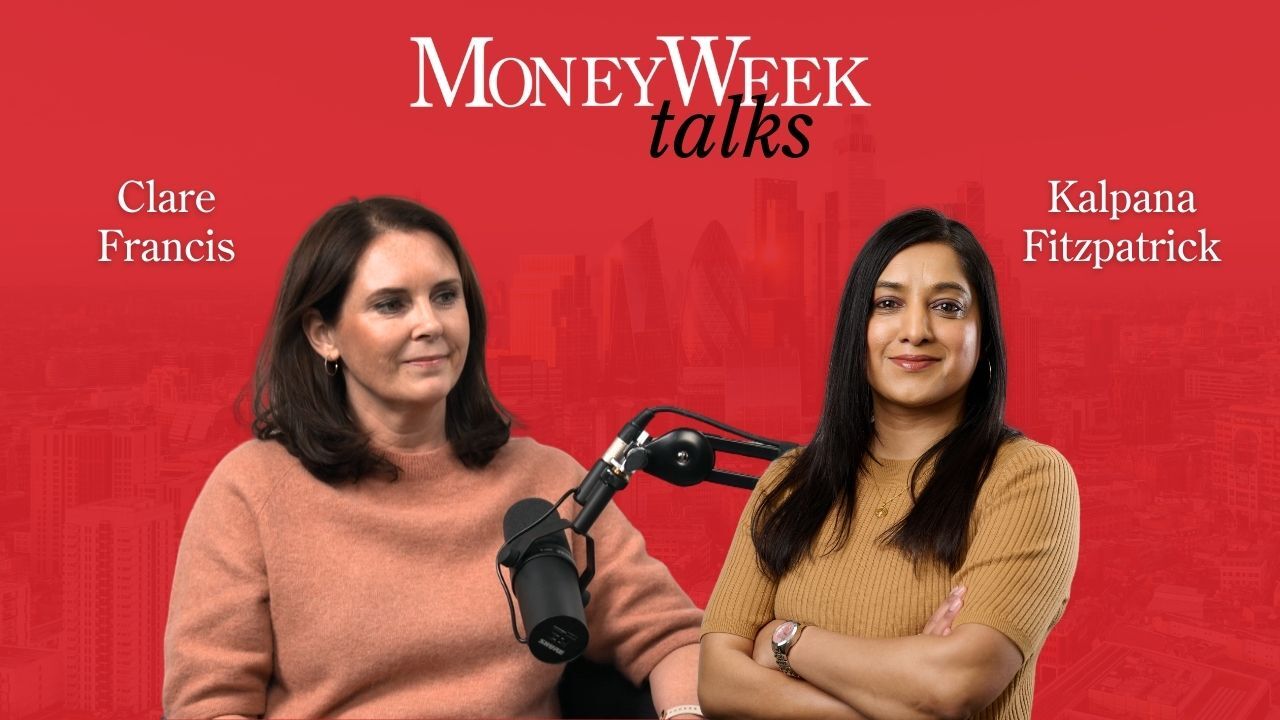Bolton's China fund is too expensive and too risky
What really annoys me about Anthony Bolton's new China fund.

Get the latest financial news, insights and expert analysis from our award-winning MoneyWeek team, to help you understand what really matters when it comes to your finances.
You are now subscribed
Your newsletter sign-up was successful
Want to add more newsletters?
Last week I wrote about my views on Fidelity's new China fund, to be run by the UK's only stock-picking guru Anthony Bolton.
My main point was that the fund is far too expensive on every single level. The 1.5% management fee is too high, and the performance fee of potentially another 1.5% is ludicrous, based as it is on relative, not absolute, performance.
I'm also irritated by the fact that the huge marketing costs for this fund (expected to be up to £7m, according to the prospectus) will come out of the fund separately to the management fee. And, of course, the business of paying IFAs commission to sell the fund to their clients is just wrong.
Try 6 free issues of MoneyWeek today
Get unparalleled financial insight, analysis and expert opinion you can profit from.

Sign up to Money Morning
Don't miss the latest investment and personal finances news, market analysis, plus money-saving tips with our free twice-daily newsletter
Don't miss the latest investment and personal finances news, market analysis, plus money-saving tips with our free twice-daily newsletter
Fidelity disagree with all this of course, so when I was invited on to the BBC's Moneybox programme this week to discuss the fees they sent along their own Gary Shaughnessy to explain why.
And what a lot of nonsense he spouted.
On the performance fee, he stuck to the old financial services mantra that if Bolton loses his investors less money than other fund managers, he has done well enough to deserve getting paid extra (up to $15m extra, if the fund meets the $1bn target it is paying IFAs to gather for it).
That may make sense in the weird world of financial services where losing money for your clients is no barrier to demanding more from them. But not in our world.
Then he said we weren't just paying for Bolton, but for the huge resource capacity the firm already has in China. The key word there I would say is "already". If they are already there, how come they cost so much extra? Anyway, they don't get mentioned much in the marketing that's all about Bolton.
Which brings me to the contradiction at the heart of Fidelity's marketing. The fund is supposed to be a long-term investment, but Bolton isn't going to be there for the long term he has committed for only two years.
I can't think of anyone who defines two years as the long term. Shaughnessy says that he might stay longer that he has committed for "at least" two years. But I'm not sure that "might" is good enough: why should anyone pay fees massively over the odds for a long-term investment on the basis that it will be run by Bolton, when there is no guarantee Bolton will be there for the long term? Bonkers.
Shaughnessy's final justification for the cost is that China is a very volatile place to invest. He is right; it is. But volatility is just another word for risky. And since when do we pay more to buy something risky?
Take cars. Your dealer has two: one has a 30% chance of crashing (nastily) but can go 120 miles an hour, while another has a 5% chance of crashing but can only go 70. Which one would you pay more for? In fund-management-land the answer is the first one. In mine it is the second one. The same should go for investment funds.
The prospectus for this fund has a long list of the risks of investing. It runs to ten pages. But at no point does it mention the key risk with this and with most funds: that you'll end up paying far more in charges than you will ever make in absolute returns.
Get the latest financial news, insights and expert analysis from our award-winning MoneyWeek team, to help you understand what really matters when it comes to your finances.

-
 The UK regions with the highest proportion of homes above the inheritance tax threshold
The UK regions with the highest proportion of homes above the inheritance tax thresholdHigh house prices are pushing more families into the inheritance tax trap across the country
-
 Are money problems driving the mental health crisis? MoneyWeek Talks
Are money problems driving the mental health crisis? MoneyWeek TalksPodcast Clare Francis, savings and investments director at Barclays, speaks about money and mental health, why you should start investing, and how to build long-term financial resilience.
-
 House prices to crash? Your house may still be making you money, but not for much longer
House prices to crash? Your house may still be making you money, but not for much longerOpinion If you’re relying on your property to fund your pension, you may have to think again. But, says Merryn Somerset Webb, if house prices start to fall there may be a silver lining.
-
 Prepare your portfolio for recession
Prepare your portfolio for recessionOpinion A recession is looking increasingly likely. Add in a bear market and soaring inflation, and things are going to get very complicated for investors, says Merryn Somerset Webb.
-
 Investing for income? Here are six investment trusts to buy now
Investing for income? Here are six investment trusts to buy nowOpinion For many savers and investors, income is getting hard to find. But it's not impossible to find, says Merryn Somerset Webb. Here, she picks six investment trusts that are currently yielding more than 4%.
-
 Stories are great – but investors should stick to reality
Stories are great – but investors should stick to realityOpinion Everybody loves a story – and investors are no exception. But it’s easy to get carried away, says Merryn Somerset Webb, and forget the underlying truth of the market.
-
 Everything is collapsing at once – here’s what to do about it
Everything is collapsing at once – here’s what to do about itOpinion Equity and bond markets are crashing, while inflation destroys the value of cash. Merryn Somerset Webb looks at where investors can turn to protect their wealth.
-
 ESG investing could end up being a classic mistake
ESG investing could end up being a classic mistakeOpinion ESG investing has been embraced with enormous speed and zeal. But think long and hard before buying in, says Merryn Somerset Webb.
-
 UK house prices will fall – but not for a few years
UK house prices will fall – but not for a few yearsOpinion UK house prices look out of reach for many. But the truth is that British property is surprisingly affordable, says Merryn Somerset Webb. Prices will fall at some point – but not yet.
-
 This isn’t the stagflationary 1970s – but neither is it the low-rate world of the 2010s
This isn’t the stagflationary 1970s – but neither is it the low-rate world of the 2010sOpinion With soaring energy prices and high inflation, it might seem like we’re on a fast track back to the 1970s. We’re not, says Merryn Somerset Webb. But we’re not going back to the 2010s either.